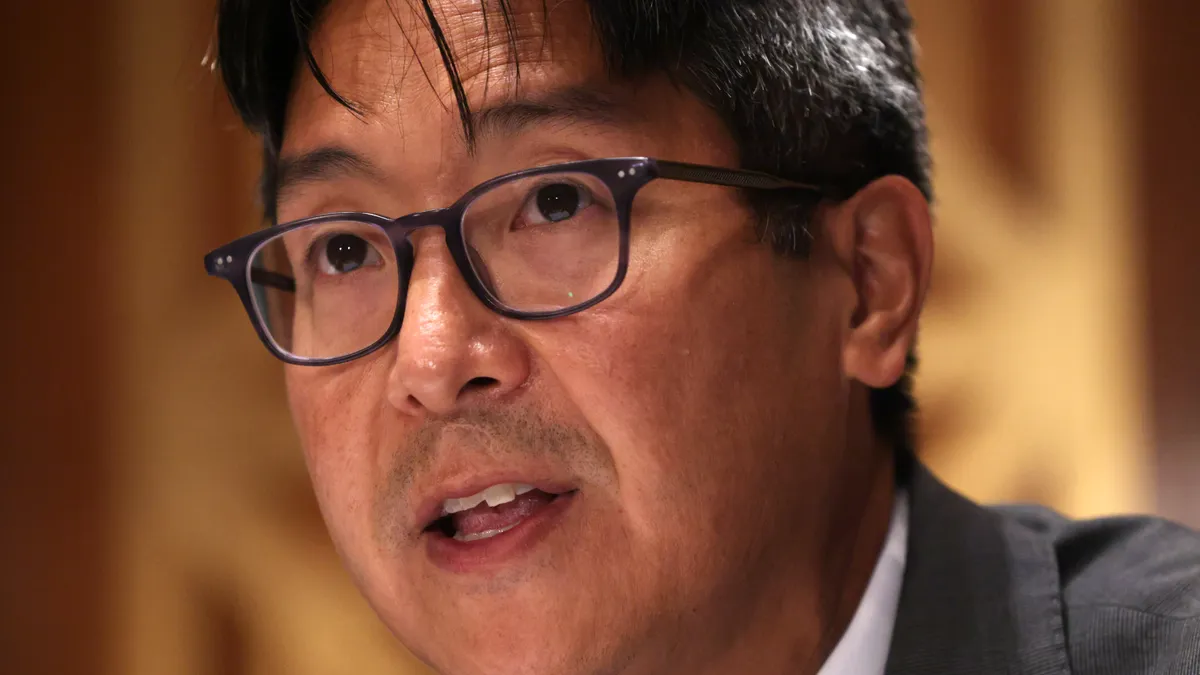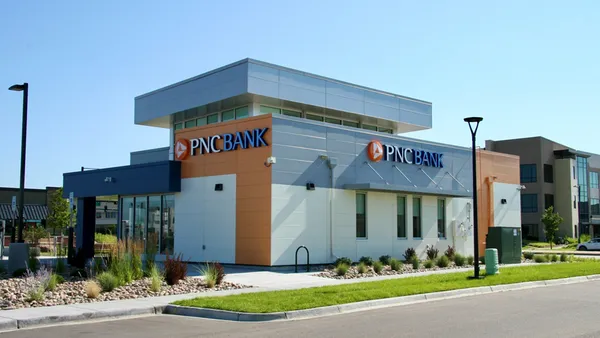The evolution of open banking in the U.S. might affect how regulators oversee banks and the associated risks related to liquidity, operations, third-party management and compliance, Michael Hsu, acting chief of the Office of the Comptroller of the Currency, said Wednesday.
Seamless account portability, an essential aspect of open banking, might be “empowering for consumers,” but “in isolation this would likely increase the liquidity risk of retail deposits for banks,” Hsu warned at a summit Wednesday.
Open banking is consumer-permissioned financial data sharing with third parties to encourage growth and financial inclusion — objectives Hsu said the OCC supports.
Historically, retail deposits are seen as a relatively stable source of funding for banks, but with instant account portability, the retail outflows in the future might go up, Hsu said.
“Already, there is a sense that online and mobile banking may have facilitated unusually large and rapid outflows of wholesale deposits at Silicon Valley Bank and Signature Bank last month,” Hsu said.
In March, regulators had to shut down Silicon Valley Bank as depositors withdrew around $42 billion in 24 hours. Signature Bank failed soon after.
Banks will step up to retain customers, and those steps by financial institutions could “actually increase the stickiness of retail deposits and lower their liquidity risk,” Hsu said.
That’s achievable, Hsu said, but added “the transition to that state warrants careful monitoring.”
Leadership at another financial regulator, the Consumer Financial Protection Bureau, said last October the agency aims to accelerate the shift to open banking and open finance under Section 1033 of the Consumer Financial Protection Act.
The move would obligate financial institutions to share data upon consumer request. This will also help consumers move away from banks that provide less-than-desirable service and switch to preferred ones, boosting market competitiveness, according to the bureau.
But banks will not embark on open banking in a vacuum. There are fintechs, data aggregators and tech firms muscling in, and many banks rely on partnerships with them.
With the likes of Google, Apple, Amazon and Meta venturing into payments and other financial services such as lending, “it is … getting harder and harder to distinguish between banking and commerce in the digital arena,” Hsu said.
“In banking, trust is everything. It cannot be engineered or manufactured or bought. It must be earned, carefully maintained, and vigorously protected,” Hsu said Wednesday. “An open banking culture that recognizes that and puts trust above other objectives, including growth and profit, will succeed and thrive over time.”














